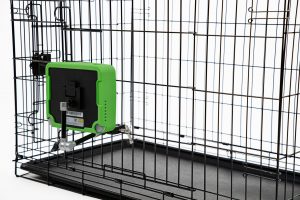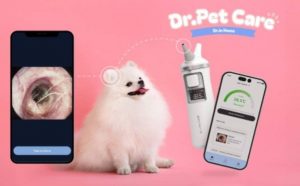A sheep « collar » device that measures the maternal performance of livestock has been described as a « game-changer » for improving mothering ability, productivity and welfare in the sheep industry.
Mike Tate, director of Four Good Foods which has been trialling the technology in New Zealand, believed it was similar to the introduction of pregnancy scanning to the sheep sector.
Smart Shepherd used Bluetooth technology to accurately identify the lambs raised by each ewe and measure the strength of the ewe-lamb bond, measuring the frequency of interaction and the distance at which the ewe and lamb associated in a paddock.
It was developed in Australia by Dave Rubie, who had worked in IT and then with Sheep Genetics Australia. He saw an opportunity to put together electronic means of looking into lamb-ewe interaction, Dr Tate said.
The device could be fitted on an animal between four weeks of age and weaning. Once removed, information was analysed and returned within 48 hours.
It provided dam pedigree, birth rank and rearing rank and the information could be loaded into any animal performance recording system. Sire pedigree could be included in the results package if the programme single sire mated the ewes in the flock.
Four Good Foods had spent a year testing the technology and adapting it for New Zealand conditions, such as water — the collars had to be modified to make them more waterproof — and to much larger flock situations.
A merino flock near Alexandra and a crossbred flock in North Canterbury had been trialling it and there was a lot of interest in the technology, Dr Tate said.
It was a commercial proposition for stud breeders; much quicker and easier than visual matching at birth or in the yards, and lower cost and faster than DNA-testing, with the results back in days, he said.
If lambs weaned to ewes wintered got up to 160%-170%, then that would be « huge » for the industry. Mothering ability was the « heart of the farm » — « and it impacts on everything ».
« I really believe in the concept of getting large amounts of data from real commercial animals. Suddenly the world opens up, » he said.
Four Good Foods was developing a proof of concept for the technology to be used for commercial sheep farmers with the help of a $40,000 grant from the Ministry for Primary Industries’ sustainable food and fibre futures fund.
« Knowing who is a profitable ewe, and who is not, allows farmers to accurately identify and remove ewes that are losing money for a farm business. Smart Shepherd is the missing piece of the puzzle.
« Over time, this will look to deliver increased ewe output, flock health and product quality (meat or wool) and reduced emissions. Known top performers can also be identified to be mated to breed flock replacements, » he said.
The system could work in any environment with grazing livestock and Four Good Foods was looking at deer, a livestock option Dr Tate believed had real potential.
Deer farmers were interested in identifying hinds that produced good velvet stags, but modifications were being made to collars because they were not being retained, he said.
Lire la suite: www.odt.co.nz






